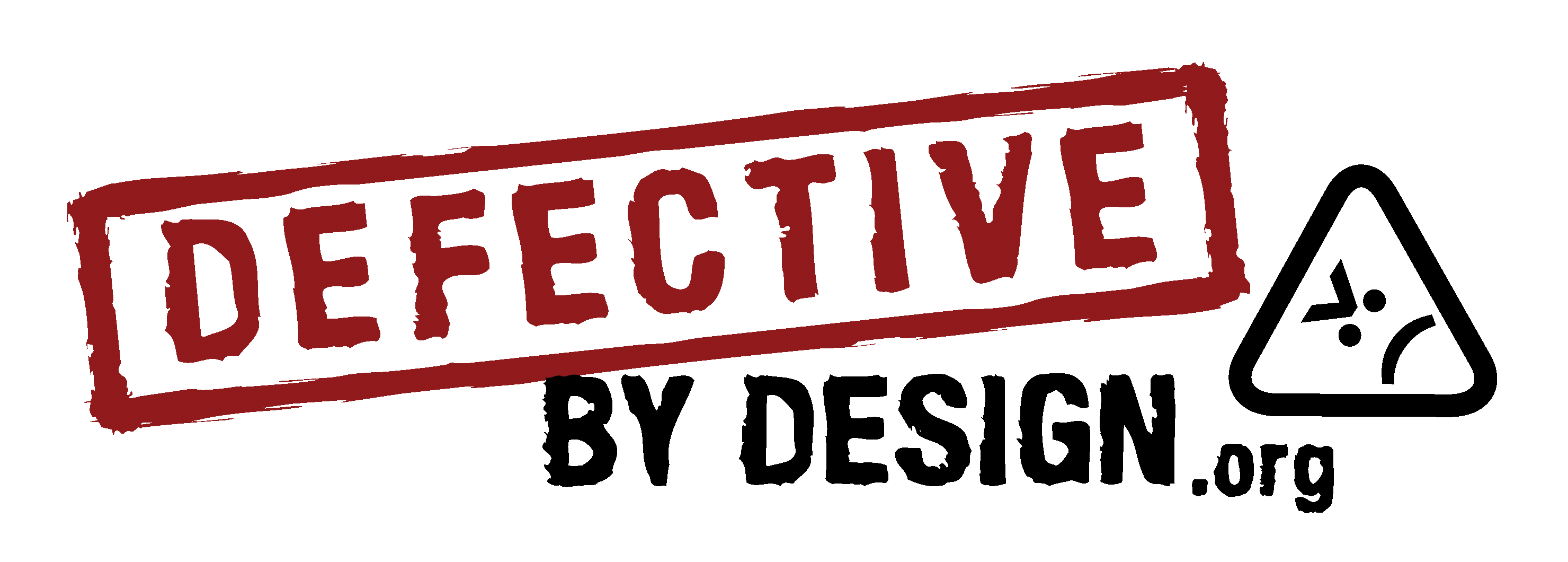BOSTON, Massachusetts, USA -- Friday, December 10th, 2021 -- A global community of activists is taking part today in the Defective by Design campaign's 15th annual International Day Against DRM (IDAD) to protest use of Digital Restrictions Management, a widespread technology that places unethical restrictions on how people access digital media. Though from different backgrounds, countries, and perspectives, participants in the campaign share the common cause of opposing DRM in all of its forms. This year's target is Disney+'s streaming platform.
Led by the Free Software Foundation (FSF), the Defective by Design campaign is mobilizing activists to spread awareness on Disney+'s use of DRM by leaving negative reviews on its app store listings. This is joined by a general call to unsubscribe from streaming platforms that restrict their offerings with DRM, and a challenge to go a "day without DRM" as a way to raise awareness of publishers and storefronts that intentionally refrain from using it, such as those cataloged by the campaign's Guide to DRM-free Living.

Typically, DRM is used as a way to restrict a user's access to music, films, software, and more. It is embedded in both physical and digital media, such as the "copy protection" on a Blu-ray disc or the mechanism that prevents recording (or even taking screenshots) from streaming platforms like Disney+ and Netflix. This latter case has been a place of overwhelming growth for DRM, as customers have flocked to streaming platforms for entertainment in the wake of the COVID-19 pandemic. Disney, and the corporations behind other streaming platforms, leverage digital restriction to prevent users from handling streamed media in the same way that they would a local file or disk. In most cases, this means also requiring a constant Internet connection for authentication purposes, which may also collect large amounts of telemetric data based on a user's habits.
"Disney and media corporations like it have played an amazing parlor trick on their customers and culture at large. In the span of just a few years, they've gotten us to believe that it's normal for a company to restrict media in such a radical way," said Greg Farough, campaigns manager at the FSF. "We are now rushing towards a world where we'll be prevented from the kind of sharing that's at the foundation of cultural exchange. You can't check one of these works out from the library, loan them to a friend, or pass them down through your family. That's the kind of world that Disney is very purposefully creating. Their customers are being forced to give up control over their computers and devices, simply because they might do something that Disney doesn't like. This is an overreach beyond the overreaches of copyright for which they've lobbied for decades. There is nothing holding this power dynamic in place but our continued belief that it's normal."
Now in its fifteenth year, Defective by Design has a long history of campaigning for a user's rights to control their media and the devices they use to interact with it. Being the anti-DRM campaign of the FSF, it is inspired by the spirit and community of the global movement for user freedom. As proprietary (or "nonfree") software is the method by which most DRM is implemented, the FSF started the campaign in 2006 as a logical outgrowth of its mission to bring freedom to computer users.
The campaign's call to action against Disney+ was put out as part of the International Day Against DRM, but it nevertheless encourages its supporters to speak out against DRM in media whenever they have the opportunity. Defective by Design's organizers are inviting other organizations and individuals to collaborate with them in their work against DRM, by contacting info@defectivebydesign.org to discuss possible actions. The campaign is funded by individuals who join as FSF associate members, and those who make a one-time donation.
About Defective By Design
Defective by Design is the Free Software Foundation's campaign against Digital Restrictions Management (DRM). DRM is the practice of imposing technological restrictions that control what users can do with digital media, creating a product that is defective by design. DRM requires the use of proprietary software, and is a major threat to computer user freedom. It often spies on users as well. The campaign, based at https://defectivebydesign.org, organizes anti-DRM activists for in-person and online actions, and challenges powerful media and technology interests promoting DRM. Supporters can donate to the campaign at https://my.fsf.org/civicrm/contribute/transact?reset=1&id=40, and the campaign can be reached via social media at @endDRM on Twitter, and @endDRM@hostux.social on Mastodon.
About the Free Software Foundation
The Free Software Foundation, founded in 1985, is dedicated to promoting computer users' right to use, study, copy, modify, and redistribute computer programs. The FSF promotes the development and use of free (as in freedom) software -- particularly the GNU operating system and its GNU/Linux variants -- and free documentation for free software. The FSF also helps to spread awareness of the ethical and political issues of freedom in the use of software, and its Web sites, located at https://www.fsf.org and https://www.gnu.org, are an important source of information about GNU/Linux. Donations to support the FSF's work can be made at https://donate.fsf.org. Its headquarters are in Boston, MA, USA.
Media Contact
Greg Farough
Campaigns Manager
Free Software Foundation
(617) 542-5942
campaigns@fsf.org